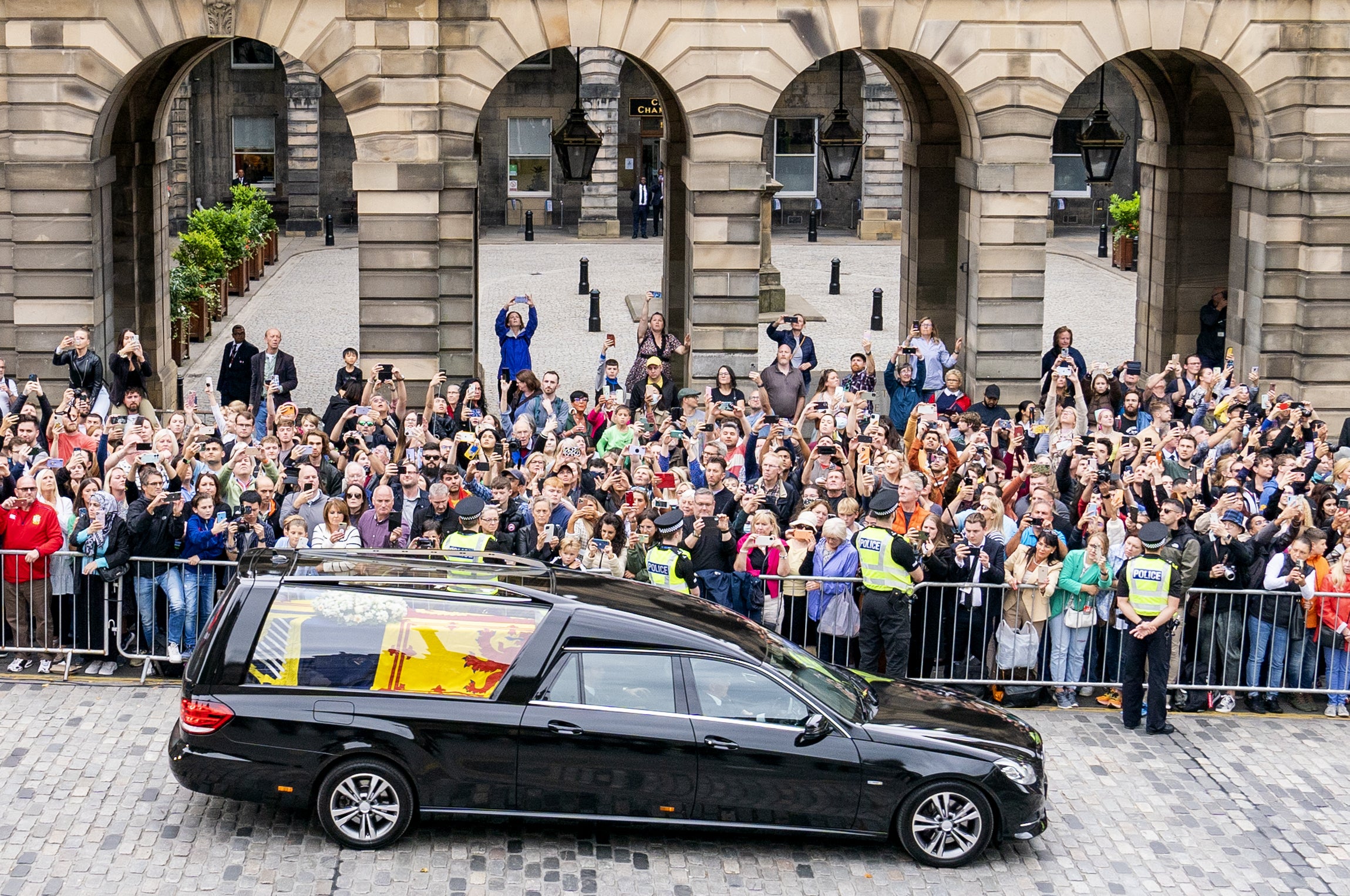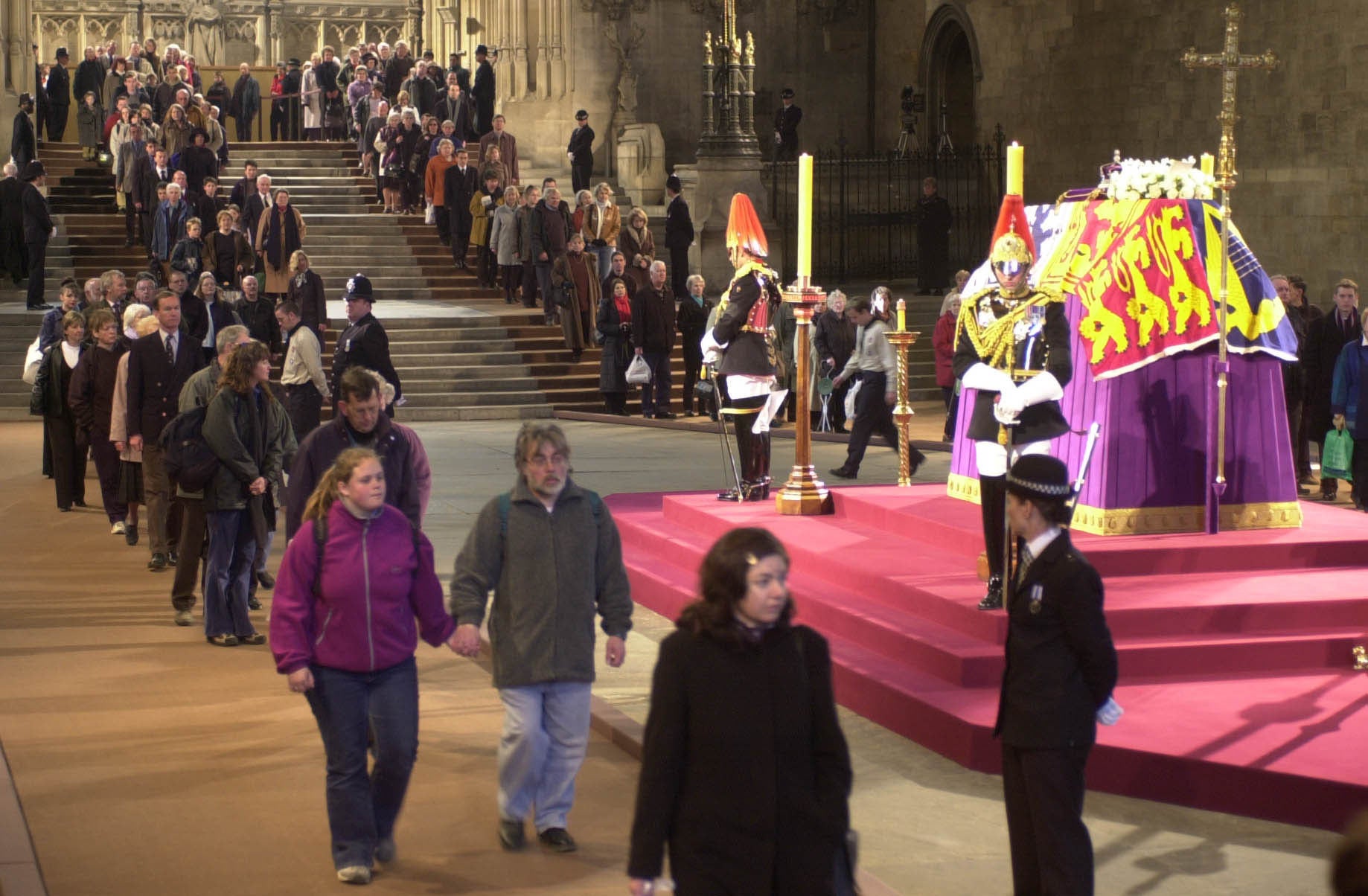
Mourners hoping to pay their final respects to Queen Elizabeth II should expect long queues that could last overnight.
For four days the public will be able to file past the Queen’s coffin as she lies in state at Westminster Hall from Wednesday, 14 September.
It will rest on a raised platform called a catafalque, with each corner guarded 24 hours a day by soldiers from units that serve the Royal Household.
Those wishing to pay their respects at London’s Westminster Hall will be able to file past 24 hours a day from 5pm on Wednesday, 14 September until 6.30am on the day of her funeral – Monday, 19 September.
With the long queues, however, comes stringent rules and an enhanced police response which is codenamed - Operation Feather.

What is Operation Feather?
The management of queues is codenamed Operation Feather and will involve the police response to the thousands of mourners hoping to pay their respects. According to reports, the queue could stretch five miles and include over 750,000 people.
New Met chief Sir Mark Rowley, who first joined planning for the Queen’s death “five or six years ago”, said the lying in state presented a “massive challenge”.
He added: “We will have a safe event but we will be putting thousands of officers into this because of the level of security required and the millions of people who want to pay their respects.”
Senior royals are also expected to pay their own tribute by standing guard at some stage around the coffin in a tradition known as the Vigil of the Princes.
Visitors have been told to expect to stand for “many hours, possibly overnight” with very little opportunity to sit down. Visitors will also go through airport-style security and there are tight restrictions on what you can be taken in, authorities have said.
Authorities have provided queuing strict queuing rules including guidance on dress codes warning against clothing with “political or offensive slogans”.

Queuing rules in full:
- Bags larger than 40cm x 30cm 20cm in size, bags with expandable compartments or “multiple pockets or complex openings” are prohibited, as well as “solid-sided bags” and bags on wheels.
- Flasks and water bottles are banned. Only clear water bottles are allowed and contents must be emptied of their contents before entering the security search point at the Palace of Westminster.
- Attempting to queue on the behalf of others is banned. Only those given wristbands at the end of the queue will be able to stay in the queue.
- Leaving personal items such as bags or other items will be removed and possibly destroyed.
- Gazebos and tents are banned from the queue.
- Food or liquid of any kind is also prohibited and must be eaten before reaching the security search point.
- Flowers and other tribute items such as soft toys, candles or notes are not allowed.
- Sharp items including swiss army knives, scissors or screwdrivers are not allowed.
- Personal defence items such as pepper spray are also not allowed
- Coolers, hampers, sleeping bags, blankets, folding chair and any camping equipment is not allowed in the queue.
- Non-foldable pushchairs are also banned from queues.
- Paint sprays, padlocks, chains, climbing gear, and dangerous or hazardous items are banned
- Fireworks, smoke canisters, air horns, flares, whistles, laser devices, and other items that could be used to cause a disturbance or noise are banned.
- Banners, placards, flags, advertising or marketing messages, and other similar items that could be used to cause a disturbance are banned







